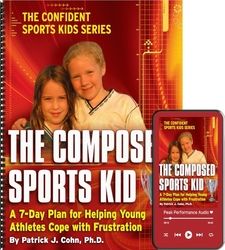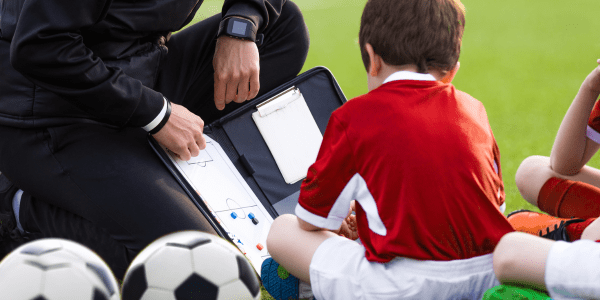Helping Perfectionist Sports Kids
Do you have sports kids who criticize themselves for making mistakes?
Do they hang onto a mistake for too long, talking about them or reminding themselves about how much they goofed up?
If so, it’s likely you have a perfectionist on your hands…
Many people think of perfectionism as being a positive quality. Perfectionists work hard and always show up on time.
But along with these positive qualities come qualities that hurt perfectionists’ confidence and performance.
If they criticize themselves for making mistakes, they’re hurting their confidence. If they can’t move on after making mistakes, they’re distracted.
But you can help kids who criticize themselves by teaching them to identify, first of all, that they’re criticizing themselves. They may not be aware of how much they’re doing this or that they can change this.
Help them understand why this works against them:
They’re sinking their confidence. What’s more, they’re distracted. They need to be thinking about their next move-not focusing on their last one and how bad it was.
While you’re at it, you might point out that being a perfectionist has its up side, but there’s also a downside.
Help perfectionist sports kids take a look at these traits and think about perfectionism and how it can hurt them.
Of course, if you’re not careful, perfectionists will start criticizing themselves for being perfectionists!
Help them understand that making mistakes is human, and generally helps sports kids learn-if they can see mistakes as a learning experience.
They need to let go of mistakes and move on to the next move or play. Help them think about the many ways they can learn from their mistakes.
For example, you may have a point guard who freezes up after someone steals the ball from him or her.
Help these types of young athletes understand that instead of freezing up, they need to come up with a strategy for getting around that player-and they need to be creative and risky about it!
That means they may lose the ball a few more times before they figure out the best strategy.
Related Articles on Kids’ Mental Game:
- When Young Athletes Doubt Their Skills When Criticized
- What to do When Sports Kids Don’t Believe in Themselves
- Helping Kids Stop Criticizing Their Game
*Subscribe to The Sports Psychology Podcast on iTunes
*Subscribe to The Sports Psychology Podcast on Spotify
The Composed Sports Kid

“The Composed Sports Kid” audio and workbook digital download program for young athletes and their parents or coach helps kids cope with frustration and anger in sports. Help your sports kids learn how to manage expectations and let go of mistakes so they can keep their head in the game.
The Composed Sports Kid system is really two programs in one–one program to train parents and coaches how to help their kids practice composure, and one program that teaches young athletes–ages 6 to 13–how to improve composure, let go of mistakes quickly, have more self-acceptance, and thus enjoy sports more!


Kids that are used to being good at something don’t handle making mistakes well. It can be hard for them to bounce back after a mishap because they aren’t used to overcoming that. It’s really more of a mental issue than a physical thing. Remind them to cut themselves some slack!